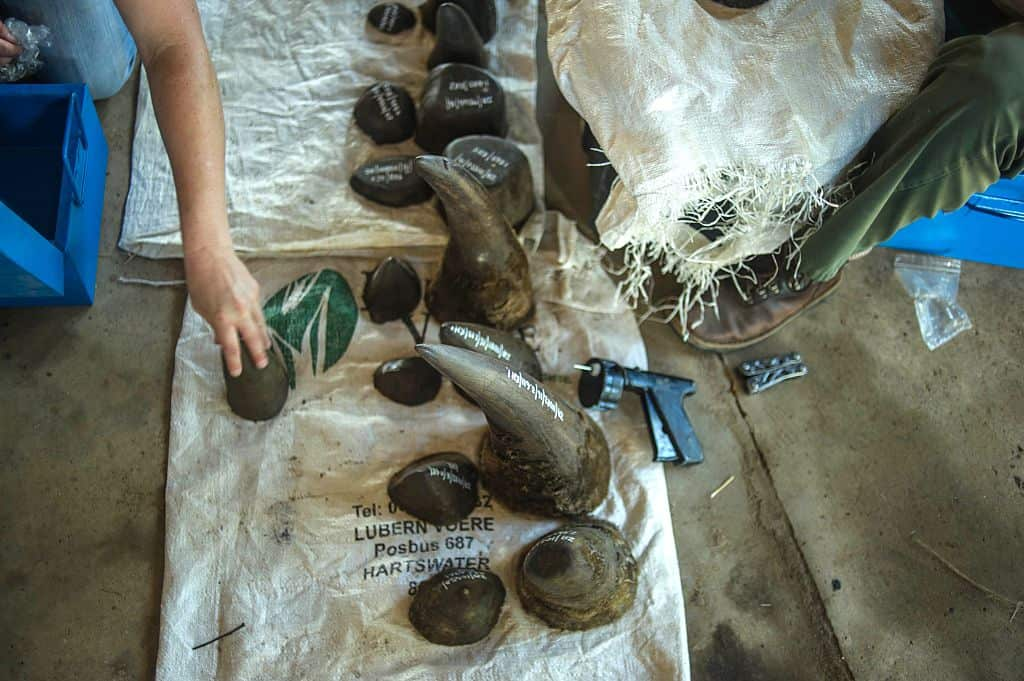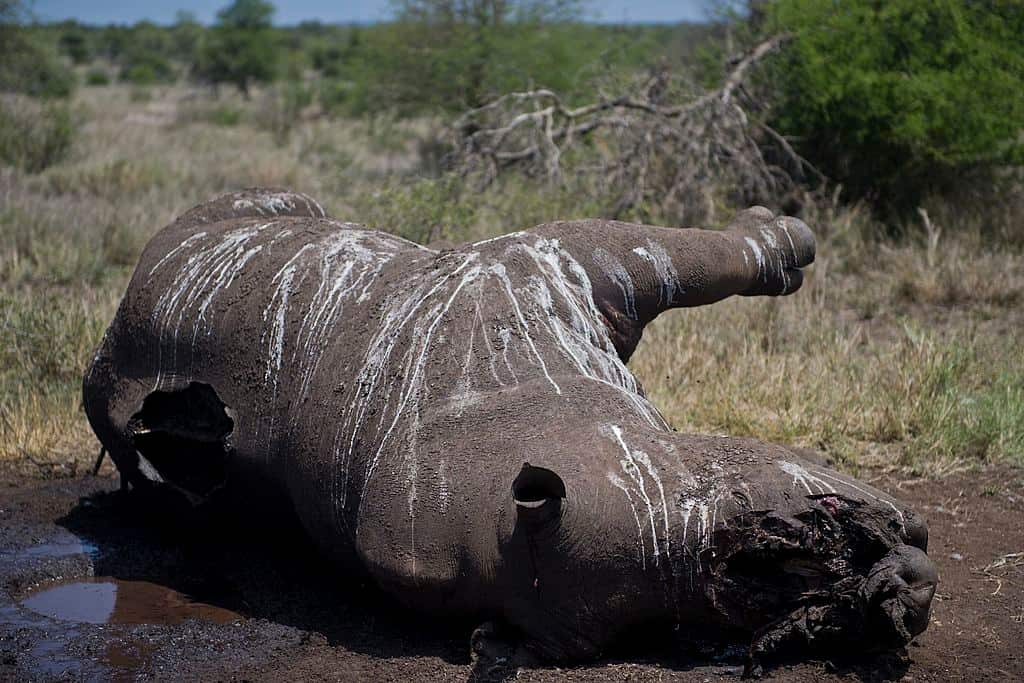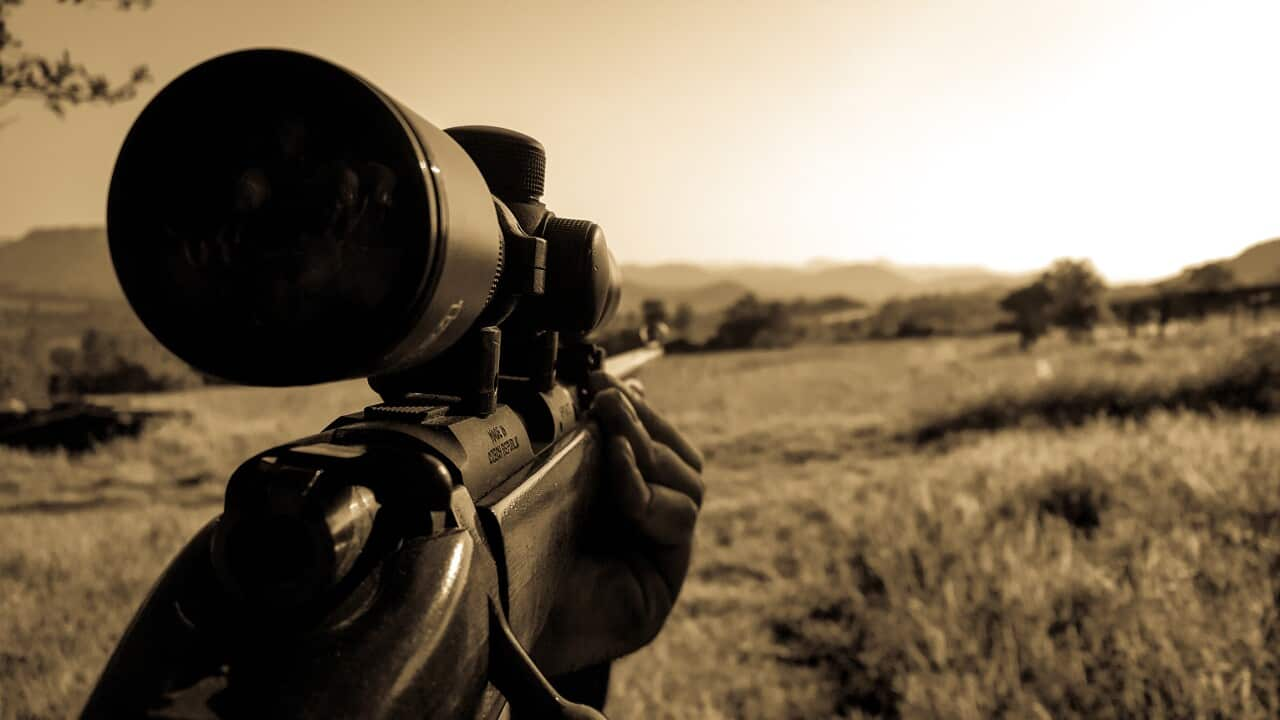Warning: contains graphic content
It is on those nights when the moon is at its brightest that the poachers come out, armed with AK-47s, wearing socks over their shoes and sponges on their feet to move silently and disguise their tracks.
They risk jail, injury or death for the chance to get their hands on a rhinoceros horn - the highest prize on the international black market.
While the poacher receives a sum of around $14,500 for their efforts, the end price on the black market is about $107,000 per kilogram, according to Endri Steyn, the head of security at a private game reserve next to Kruger National Park in north-east South Africa, who is on the frontline of South Africa's battle against poachers.
"Each horn weighs five or six kilograms, so you do the multiplication," Steyn tells SBS.
That means top tier criminals are pocketing almost $650,000 per horn.
By comparison, ivory is worth just an eighth of the price, at $13,400 per kilogram.
That's because rhino horn is in short supply, as the animal is hunted to the brink of extinction, and demand is high in places such as Vietnam and China, where it is used in Traditional Chinese Medicine and is treated as a symbol of wealth and social standing.

According to traditional Chinese texts, such as Li Shih-chen’s 1597 medical text "Pen Ts’ao Kang Mu", rhino horn has been used in Chinese medicine for more than 2,000 years to treat everything from fever to rheumatism, gout, and other disorders.
It also states that the horn could also cure snakebites, hallucinations, typhoid, headaches, carbuncles, vomiting, food poisoning, and "devil possession".
Rhino horn is made of keratin and is similar in structure to horses' hooves, turtle beaks and cockatoo bills. It is shaved or ground into a powder and dissolved in boiling water and consumed by the patient.
In Vietnam, it is touted as a hangover cure, and a treatment for terminal illnesses such as cancer. It is also increasingly used as a status symbol to show wealth, to seal business deals and to be displayed at social gatherings.

Studies have found no evidence that rhino horn is an effective treatment for cancer, pain, inflammation, muscle spasm, stomach ailments or cleaning wounds.
Dr Raj Amin from the Zoological Society of London analysed rhino horn in a series of extensive tests, and concluded: "There is no evidence at all that any constituent of rhino horn has any medical property. Medically, it's the same as if you were chewing your own nails."
The private game park that Steyn oversees is piloting a project by technology companies Dimension Data and Cisco called Connected Conservation, which is using high-tech measures such as thermal imaging, CCTV, biometric scanning, seismic sensors and drones, to stop poachers in their tracks and has so far seen a 96 per cent reduction in rhino poaching within their boundaries.
But at the other end of chain in the illegal trade, efforts are being made to educate people about the need to protect the rhinoceros.
Prince William attended the Hanoi Conference on Illegal Wildlife Trade in Vietnam on November 17, and visited a school attended by children whose parents work in traditional Chinese medicine, where he read them an anti-poaching storybook called "I'm a Little Rhino".
"We know where the animals are that are being killed, we know through which ports, airports and highways their products are being shipped from killing field to marketplace. And we know which markets are fueling the demand for the entire trade. We can win this battle, and in doing so, we can take a small but very important step in reminding ourselves that we are capable of rising to the challenges of our age," the Duke of Cambridge told the conference.
The author travelled to South Africa as a guest of Dimension Data.

